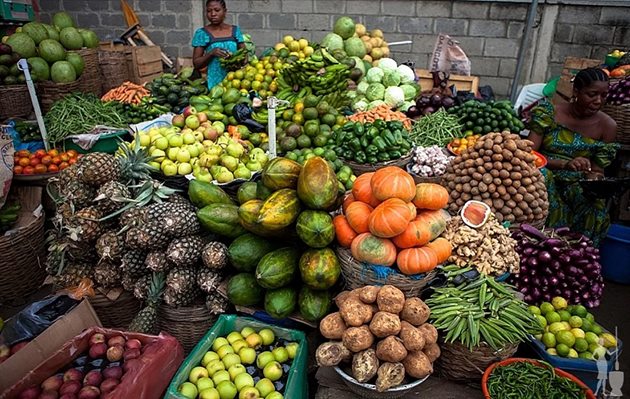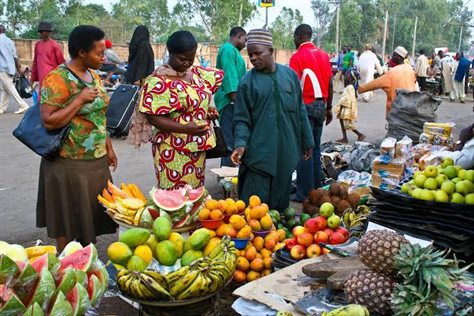How to Market and Sell Your Farm Produce in Nigeria: A Comprehensive Guide

Agriculture remains one of the most profitable sectors in Nigeria, but many farmers struggle with marketing and selling their produce effectively. If you are a farmer or an agribusiness entrepreneur, understanding how to market and sell your farm produce efficiently is essential for maximizing profit. This guide provides a step-by-step approach, reviews various sales channels, and explores income visibility strategies to help you succeed in Nigeria’s agricultural market.
Step 1: Understand Your Market
Before diving into selling, it is crucial to research and understand the market trends for your farm produce. Consider the following:
- Demand and supply dynamics: Identify which farm products are in high demand at different times of the year.
- Target audience: Know who your buyers are—wholesalers, retailers, direct consumers, or processors.
- Market competition: Study your competitors, their pricing, and marketing strategies.
- Geographical influence: Some crops sell better in urban areas than in rural areas due to population density and demand.
- Economic trends: Consider inflation rates and how they impact the purchasing power of buyers.
- Government policies: Stay updated with regulations, subsidies, and incentives available for farmers.
Step 2: Select the Right Sales Channels
Choosing the right sales channel can significantly impact your farm business’s profitability. Below are some options:
READ MORE: Cattle Rearing in Nigeria for Beginners: How to Start and Succeed
1. Local Markets and Open Stalls
- Farmers can sell directly to consumers at local markets.
- Benefits: Immediate cash flow, no middlemen.
- Challenges: Competition, price fluctuations, and transportation costs.
- Tip: Visit different markets to compare demand and pricing before setting up a stall.
2. Wholesalers and Distributors
- Selling in bulk to wholesalers who then distribute to retailers or other buyers.
- Benefits: Quick sales, reduced marketing efforts.
- Challenges: Lower profit margins and dependence on wholesalers.
- Tip: Negotiate bulk deals and build long-term relationships with trustworthy wholesalers.
3. Supermarkets and Grocery Stores
- Partnering with grocery stores to supply fresh farm produce.
- Benefits: Consistent demand, premium pricing.
- Challenges: Strict quality control and regulatory requirements.
- Tip: Ensure proper packaging and labeling to meet supermarket standards.
4. Online Marketplaces and E-Commerce Platforms
- Selling through platforms like Jumia, Konga, or dedicated agricultural e-commerce sites.
- Benefits: Wider reach, direct sales, and convenience.
- Challenges: Delivery logistics and digital literacy.
- Tip: Use high-quality images and detailed product descriptions for better sales.
5. Social Media and Digital Marketing
- Using platforms like Facebook, Instagram, TheMarketsoOlineNg.Com and WhatsApp to market farm produce.
- Benefits: Low cost, direct engagement with buyers.
- Challenges: Requires digital marketing skills and consistent effort.
- Tip: Post engaging content, such as cooking tips using your farm produce, to attract buyers.
6. Farmers’ Cooperatives and Associations
- Joining cooperatives to pool resources and sell in bulk.
- Benefits: Better bargaining power, shared logistics.
- Challenges: Profit-sharing and bureaucracy.
- Tip: Choose a cooperative with a good track record and active participation.
7. Agro-Processing Companies
- Selling raw produce to companies that process them into finished goods.
- Benefits: Large-scale sales and long-term contracts.
- Challenges: Requires high-quality standards and formal agreements.
- Tip: Sign supply contracts to secure stable income.
Step 3: Improve Your Farm Produce Visibility
To attract more buyers and increase income, you need to boost the visibility of your farm produce. Here are some strategies:
- Branding and Packaging: Invest in attractive, hygienic, and eco-friendly packaging.
- Networking: Attend agricultural trade fairs, exhibitions, and events.
- Advertisements: Run local radio, TV, and newspaper ads.
- Word of Mouth: Encourage satisfied customers to refer others.
- Customer Loyalty Programs: Offer discounts and incentives to repeat buyers.
- Partnerships: Collaborate with restaurants and food vendors to establish a steady customer base.
- Value Addition: Consider processing raw farm products into finished goods such as dried fruits, flour, or oils to increase demand.
Step 4: Determine Pricing and Payment Options

How to Market and Sell Your Farm Produce in Nigeria
- Market-based Pricing: Check what competitors are charging.
- Cost-based Pricing: Ensure your price covers production costs and leaves room for profit.
- Value-based Pricing: Charge based on the quality and uniqueness of your produce.
- Flexible Payment Methods: Accept mobile transfers, cash, and digital payments.
- Subscription Model: Offer weekly or monthly delivery subscriptions to consistent customers.
Step 5: Logistics and Delivery
- Choose Efficient Transport Methods: Use motorcycles, trucks, or third-party delivery services.
- Preservation Techniques: For perishable goods, invest in cold storage or preservatives.
- Partnerships: Collaborate with logistics companies for smoother operations.
- Bulk Delivery Deals: Offer discounts for bulk purchases with delivery included.
Review: Income and Profitability in Selling Farm Produce
Farmers in Nigeria can generate significant income by implementing effective marketing strategies. However, the success of selling farm produce depends on factors like market trends, pricing, visibility, and logistics. To optimize your profits:
- Diversify your sales channels.
- Implement value-added services like processing and packaging.
- Leverage technology and online marketing.
- Build strong relationships with customers and suppliers.
- Monitor financial records to assess profitability and reinvest in business growth.
VIDEO: How to Market and Sell Farm Produce in Nigeria
Conclusion: Share Your Thoughts!
We hope this guide has provided valuable insights on marketing and selling your farm produce in Nigeria. Selling farm produce is not just about growing crops but about understanding the market, choosing the right sales channels, improving visibility, and maintaining a strong business network. By implementing these strategies, you can increase your income and build a successful agribusiness.
Have you tried any of these methods? What challenges have you faced? Do you have additional tips for fellow farmers? Share your experiences in the comments below! Your feedback can help other farmers grow their businesses successfully.

Leave your comment